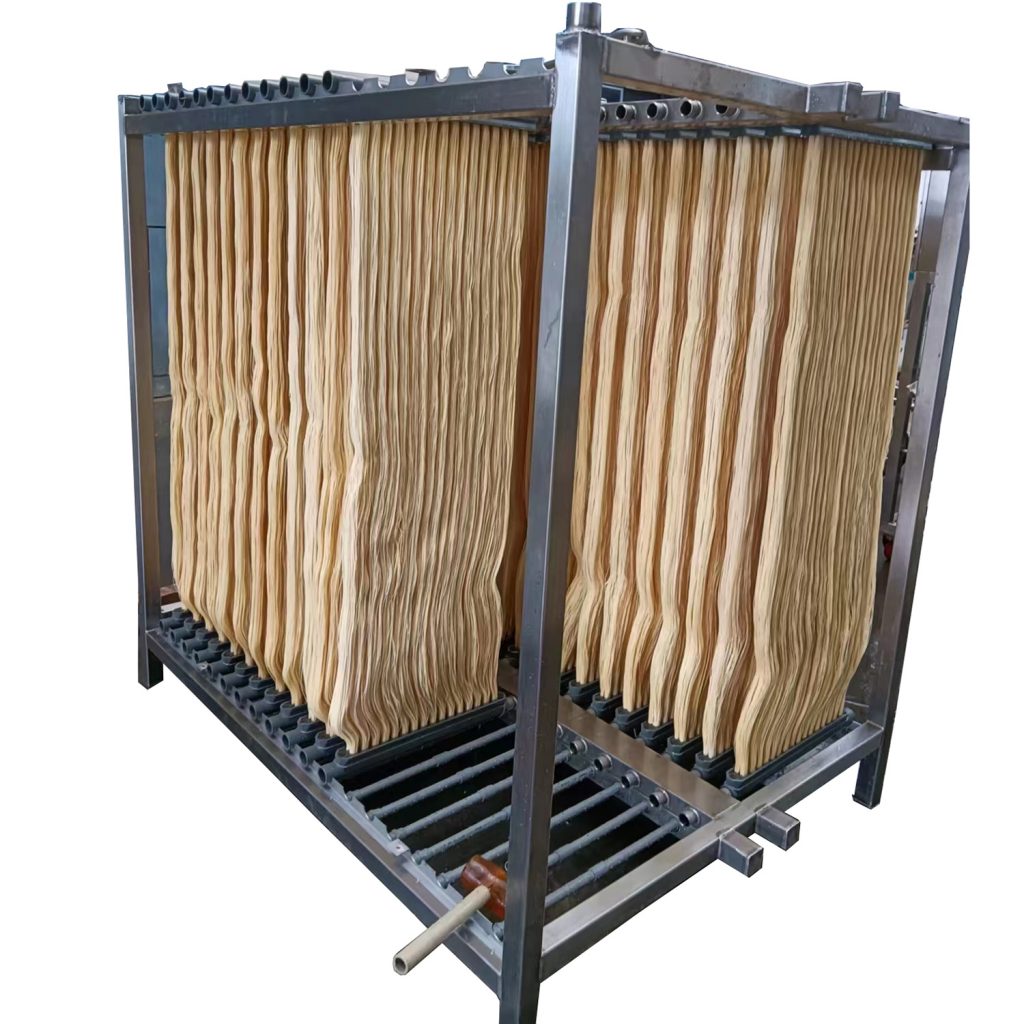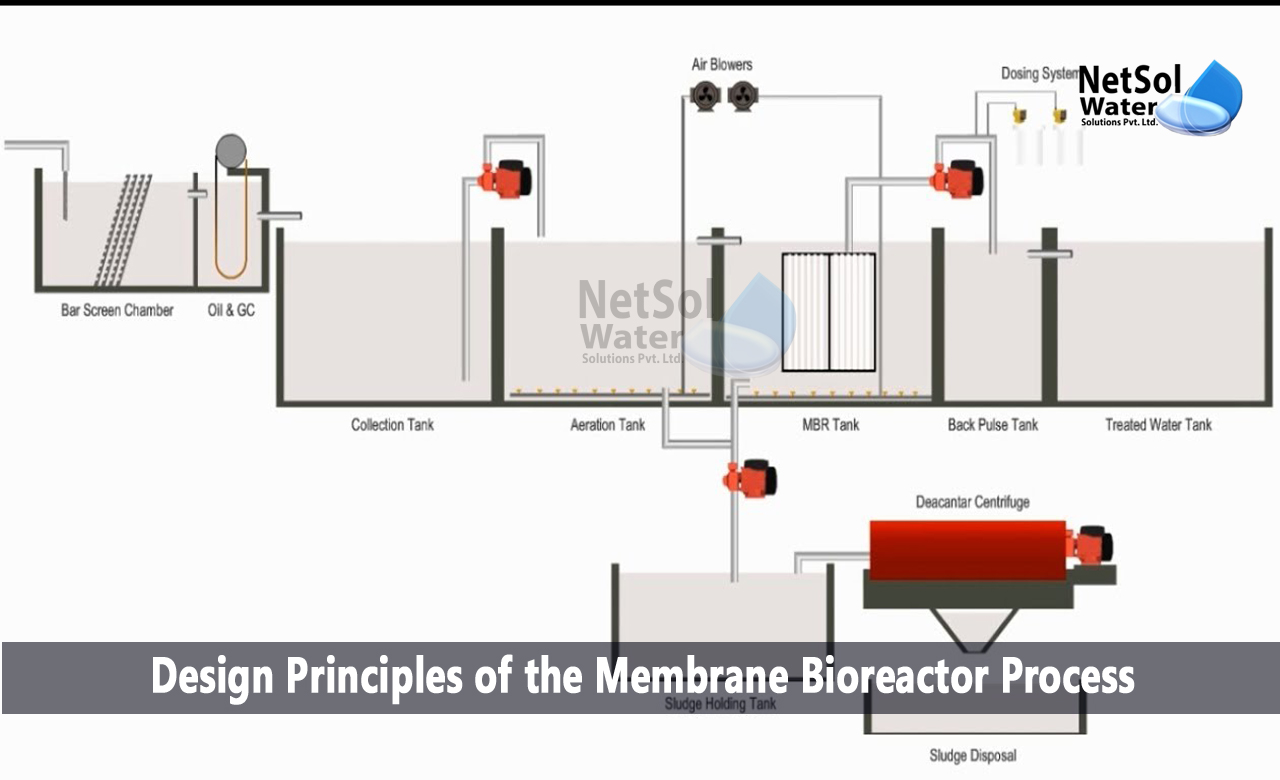How Membrane Bioreactor Can Help Meet Stringent Environmental Regulations
How Membrane Bioreactor Can Help Meet Stringent Environmental Regulations
Blog Article
The Advantages of Membrane Layer Bioreactors in Lasting Wastewater Monitoring
Membrane bioreactors (MBRs) stand for a pivotal advancement in lasting wastewater administration, properly combining organic therapy with advanced membrane layer filtration innovation. As the need for lasting remedies escalates, exploring the complex advantages of MBRs may disclose unanticipated implications for the future of wastewater treatment systems.
Summary of Membrane Layer Bioreactors
Membrane bioreactors (MBRs) represent a significant development in wastewater treatment modern technology, incorporating biological deterioration with membrane layer filtration to improve the effectiveness of the therapy procedure. This ingenious system incorporates the advantages of conventional triggered sludge processes with membrane layer modern technology, permitting enhanced solid-liquid splitting up. MBRs use semi-permeable membranes to different treated water from biomass, resulting in high-grade effluent that can be reused or securely released into the environment.
The operational design of MBRs generally includes a bioreactor where microbes break down natural issue, adhered to by a membrane unit that filterings system the blended liquor. This configuration not only lessens the impact of the treatment facility but likewise enables greater biomass focus and minimized hydraulic retention times. Moreover, MBRs can treating a bigger variety of contaminants, including nutrients and virus, making them suitable for different applications, from metropolitan wastewater therapy to commercial effluent handling.
The integration of MBRs into wastewater administration systems is a measure of a growing pattern in the direction of efficient and lasting practices in ecological engineering. Their capability to generate top quality effluent while lessening room requirements settings MBR innovation as an essential gamer in modern wastewater treatment services.
Boosted Effluent Top Quality

The membrane filtering procedure acts as a physical obstacle, making it possible for the retention of microorganisms and particle matter, which adds to a more clear and cleaner effluent (Membrane Bioreactor). Furthermore, MBRs operate at greater biomass concentrations than traditional turned on sludge systems, advertising much more effective biodegradation of pollutants. This results in a decrease in biochemical oxygen demand (FIGURE) and total suspended solids (TSS) levels in the final effluent
In addition, MBRs demonstrate superb efficiency in treating tough wastewater structures, such as commercial effluents and wastewater with high nutrient loads. Because of this, the effluent generated is commonly of better, permitting more flexible disposal alternatives and reduced ecological influence. Ultimately, the enhanced effluent top quality achieved with MBR modern technology underscores its vital duty beforehand lasting wastewater management methods.
Water Reuse Opportunities
The high-quality effluent generated by membrane bioreactors (MBRs) opens up significant chances for water reuse in numerous applications. MBRs efficiently get rid of impurities, including virus, put on hold solids, and raw material, leading to cured water that meets or surpasses regulative standards for reuse. This high quality permits for the application of water recycling campaigns across diverse fields.
One prominent application is in farming, where dealt with wastewater can be utilized for watering, promoting sustainable farming techniques while preserving fresh water resources. In addition, MBR-treated my company effluent can be utilized for industrial procedures such as air conditioning, cleaning, and as a procedure water resource, considerably minimizing the need for safe and clean water in these procedures.
In metropolitan atmospheres, MBRs assist in the use of recovered water for landscape watering, toilet flushing, and other non-potable uses, contributing to the overall resilience of supply of water systems. In addition, the assimilation of MBR technology in decentralized systems aids in taking care of local water needs, especially in water-scarce regions.
Minimized Ecological Influence
Just how can the fostering of membrane bioreactors (MBRs) add to a reduced ecological effect in wastewater management? MBRs significantly boost the therapy performance of wastewater while lessening environmental disruptions. By incorporating biological treatment procedures with membrane filtration, MBRs efficiently remove a vast array of pollutants, consisting of raw material, have a peek at this site nutrients, and virus. This sophisticated filtration causes higher-quality effluent, which is essential for securing water ecological communities and lowering the burden on natural water bodies.
In addition, MBRs operate at lower hydraulic retention times compared to standard systems, resulting in smaller therapy plant impacts. This small style reduces land use, consequently preserving natural habitats and biodiversity. The process likewise produces less sludge than conventional methods, alleviating disposal obstacles and reducing greenhouse gas emissions connected with sludge administration.
In addition, MBRs help with the recovery of useful sources, such as water and nutrients, adding to a circular economic situation. By making it possible for water reuse for irrigation or commercial processes, MBRs help reduce freshwater scarcity, thus promoting lasting water use practices. Inevitably, the fostering of MBR modern technology represents a considerable stride towards lessening the ecological effect of wastewater monitoring systems.
Financial Advantages of MBRs

Furthermore, MBRs facilitate the manufacturing of high-quality effluent, which can be recycled for different applications, such as agricultural irrigation and commercial procedures - Membrane Bioreactor. This reuse capacity can significantly reduce water procurement prices, giving a monetary reward for industries facing stringent water policies
The small design of MBR systems likewise results have a peek at these guys in lowered land requirements, which is specifically useful in city locations where property is pricey. By minimizing space, sectors and municipalities can save money on land acquisition and upkeep costs.
Additionally, MBRs frequently require less regular upkeep and have a longer life expectancy than conventional systems, further adding to cost financial savings. In summary, the financial advantages of MBRs-- varying from lowered operational expenses to land financial savings and effluent reuse-- make them an engaging choice for sustainable wastewater administration, providing both long-term and instant economic benefits.
Final Thought
Membrane layer bioreactors represent a transformative approach to lasting wastewater management, combining biological treatment with innovative membrane layer purification for superior effluent quality. Their ability for effective contaminant removal assists in water reuse, thus saving crucial freshwater sources. Additionally, MBRs add to reduced ecological influences with compact designs and reduced sludge generation. Economic benefits further improve their stability, making MBRs an encouraging option for dealing with the challenges of wastewater therapy and promoting lasting resource monitoring.
Membrane bioreactors (MBRs) represent a crucial development in sustainable wastewater monitoring, efficiently merging organic therapy with advanced membrane purification innovation.Membrane layer bioreactors (MBRs) represent a significant improvement in wastewater therapy modern technology, incorporating biological deterioration with membrane purification to enhance the performance of the treatment process.Accomplishing improved effluent quality is one of the most substantial advantages of making use of membrane layer bioreactors (MBRs) in wastewater treatment.In addition, MBRs show excellent efficiency in treating tough wastewater structures, such as commercial effluents and wastewater with high nutrient loads.Incorporating membrane bioreactors (MBRs) right into wastewater administration not only minimizes environmental influence yet also offers significant economic advantages.
Report this page